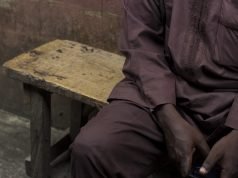PAULA MARIAS is a South African author, linguist, and an avid itinerant who has visited more than 80 countries. She holds a Master’s in Creative Writing from the University of Cape Town and an Honours Degree in Publishing from the University of Witwatersrand. Her debut novel, Shadow Self won the 2015 SATI Prize for Outstanding Literary Translation award as Skaduself, and longlisted for the 2015 Etisalat Prize for Literature.
In this interview, Paula explores the topics postpartum depression, mental illness, motherhood, and the book industry in South Africa —Tope Salaudeen-Adégòkè for Saraba Magazine
SARABA: Shadow Self treats, amongst many other themes, post-natal depression. Could you tell what led to the story, why you decided to write about it?
PAULA MARAIS: When I was considering what to write about, I noticed in the South African news the increasing number of mothers who had engaged in filicide. The idea horrified me and I could not imagine at the time what would bring about a mother to end the life of her own child—it goes against nature and instinct completely. As I began to read a little more about the phenomenon, I began to mull on the mental state of such mothers. Based on this, I also started considering the concept of whether committing an evil deed makes one an entirely evil person. These were my starting points, but then, like many writers, I journeyed through some self-reflection and considered my own relationship with my children. Although I had no issues after the birth of my first son, after my second I experienced postnatal distress—and only realised it when co-writing a non-fiction book on the subject. I recognised this mental state as being one of flux and sometimes, left unmedicated and untreated, leads to poor or even terrible decision making. I was certainly not in the state that Thea gets to as she experiences psychosis and I did not. However, this personal experience gave me enough understanding to walk the road with Thea with some level of sympathy. PND is also an illness that women hide because they are ashamed to show they are not coping, and part of my purpose was to expose this fallacy of “perfect motherhood.”
SARABA: Your research and personal experience informs the plot of the novel then. Would you regard postpartum depression as a mental illness, and could you shed a light on Africans’ perception about it?
PM: Absolutely it is a mental illness, but it is a temporary state that can be treated—although it generally only lasts about nine to 10 months—the gestation of a child. I think in both African and other cultures not coping as a mother is regarded as “unacceptable.” However it can affect women of all cultures, races, classes, and ages. It is not an illness that is openly spoken about either. There is too much stigma associated with it, which is unreasonable—a new mother has so much to cope with and adjust to. In the more traditional cultures of “taking a village to raise a child,” there is definitely much more support for a mother who suffers from PND, as the childcare is something which the whole family takes an interest in. But as people have become more urbanised and separated from their families, the support structures begin to crumble and women are more vulnerable to this illness.
SARABA: Would you say African society puts too much pressure on mothers and expects too much from mothers; and who is a failed mother, who is a successful mother?
PM: I feel that the balance in society is out. Not just in African society but in every society. However, if one considers Africa, one often sees families where no positive male role models exist in a family unit. Women are often left pregnant and battling on their own to raise their families. This is a generalisation, of course, as is my entire answer to your question because each family and family situation is unique. Before the women’s movement, however, roles were very well assigned: men worked, women looked after the home/homestead and children. (Not that this was necessarily correct, but people knew where they stood.) Now, I believe, both women and men are floundering in their roles. In many families, women have to work, raise children, run the household and generally sort out everybody in their families before they can concentrate fully on themselves. I also think to a large extent, women have taken on more and men tend to stick to the previously traditional roles, although few do venture to an extent into the feminine domain.
Nevertheless, often the homemaking role still belongs to women, even though they are doing equally stressful jobs as their menfolk. This means that women begin to buckle under multiple pressures: they have to be perfect employees/employers, perfect wives, perfect mothers, perfect friends, perfect daughters. And of course this sort of pressure is not sustainable – something has to give. A failed mother or a successful mother is a matter open to interpretation.
Some would say just getting your child healthily to adulthood would make you a success. Others might say educating your children or loving them properly, or building their self-esteem are vital. I don’t believe in a successful or failed mother, but a good-enough mother, who tries her best, loves her hardest, makes mistakes, but still tries to bring out the best in her children.
SARABA: The plot of the novel is narrated from three characters’ eyes: Thea’s, Sanusha’s, and Clay’s. A question about narrative point of view; what determined your novel’s point of view?
PM: I chose to write Shadow Self from three points of view for various reasons. The first is that Thea is mentally unstable, so is an unreliable narrator. You need the counter-balance of other characters to show how other people are experiencing her perspective and also monitoring her gradual decline.
One of the key themes in the novel is motherhood, and therefore Sanusha’s analysis of her own mother is poignant. I loved writing Sanusha because she is outspoken and honest. She’s not the sort of person to mince her words so you almost always trust that what she has to say has not been filtered – she has no filters! She’s also quite analytic, almost scientific in the way she sees things. A male perspective in Clay was also vital. His view is clouded because he is passionately in love with Thea. He does not see her quite as clearly as Sanusha does, but he does show her goodness. This is what I meant earlier about committing an evil deed not necessarily making you an evil person. The two can exist simultaneously—evil and goodness.
SARABA: It is noteworthy how you have constructed the unbalanced mind of Thea Middleton in the narrative. Do you mind saying anything about the creative process of this character? How easy was that for you?
PM: I found it hard to “be” with Thea for a long time. Like any person who is feeling sad or miserable, she could drain me and I often had to take breaks away from her by entering the minds of Sanusha and Clay.
In terms of writing from the depressed state, this was not so difficult for me as I suffered from PND myself and am fully aware of the misconceptions and challenges of being in such a state. I remembered my own obstacles having a small baby, another toddler and finding it difficult to focus. Some of the symptoms Thea experiences I experienced myself, so that made it authentic. It is authentic. The challenge for Thea was to make her both on the brink of insanity and paranoia, while at the same time giving her bouts of normality and happiness—her tour guide job, her ability to speak French, her strong ties of friendship with Annie. I didn’t want people to put down the book because they found it too distressing to be with her.
SARABA: In Thea marrying Rajit, the Indian man, and her parents’ disapproval in the novel, there is a subtle indication of racism and traditionalism. What do you intend to make of it?
PM: I come from a very “Rainbow Nation” family. I am “white,” my sister-in-law is Indian, and my nephew is “black.” And I love that about my family! All the time I see the gradual melding of cultures together. It is inevitable, even though in traditional families this intermarrying would never have been acceptable and was of course illegal during apartheid. I think one cannot exist in South Africa without recognising the undertones of racism and traditionalism that do exist. I don’t think any story set in South Africa should not at least make an attempt to identify this key feature of this society. It frames and shapes all of us who live here, whatever our personal prejudices or perceptions. However, I am not a political animal. I don’t enjoy politics. What I wanted to express was partly Thea’s independence and ability to be her own person and speak her own mind—to be free of societal barriers. She loved Rajit and she wanted to marry him – despite her parents’ censure. This was important in terms of her own downfall later on. I also wanted to show the culture of family – how every family has its own culture. If we think about Rajit’s family, we can also see certain prejudices. It’s very clear that Rajit remains his mother’s little boy, whatever he does. Traditionalism of a different sort.
SARABA: You have an Honours Degree in publishing and Master’s in Creative Writing, that must have prepared you well for the book industry. How positive are you concerning the growth of this Industry?
PM: South Africa is a frustrating book market. Generally there is still a huge focus on promoting international literature rather than local and “African” books often get placed far back in the shop, rather than in the front or in the windows. This makes it very difficult for African writers to make a living on writing fiction alone—actually it is almost impossible.
SARABA: It is noteworthy how you have constructed the unbalanced mind of Thea Middleton in the narrative. Do you mind saying anything about the creative process of this character? How easy was that for you?
PM: I found it hard to “be” with Thea for a long time. Like any person who is feeling sad or miserable, she could drain me and I often had to take breaks away from her by entering the minds of Sanusha and Clay. In terms of writing from the depressed state, this was not so difficult for me as I suffered from PND myself and am fully aware of the misconceptions and challenges of being in such a state. I remembered my own obstacles having a small baby, another toddler, and finding it difficult to focus. Some of the symptoms Thea experiences I experienced myself, so that made it authentic. It is authentic. The challenge for Thea was to make her both on the brink of insanity and paranoia, while at the same time giving her bouts of normality and happiness—her tour guide job, her ability to speak French, her strong ties of friendship with Annie. I didn’t want people to put down the book because they found it too distressing to be with her.
SARABA: In Thea marrying Rajit, the Indian man, and her parents’ disapproval in the novel, there is a subtle indication of racism and traditionalism. What do you intend to make of it?
PM: I come from a very “Rainbow Nation” family. I am “white,” my sister-in-law is Indian, and my nephew is “black”. And I love that about my family! All the time I see the gradual melding of cultures together. It is inevitable, even though in traditional families this intermarrying would never have been acceptable and was of course illegal during apartheid. I think one cannot exist in South Africa without recognising the undertones of racism and traditionalism that do exist. I don’t think any story set in South Africa should not at least make an attempt to identify this key feature of this society. It frames and shapes all of us who live here, whatever our personal prejudices or perceptions. However, I am not a political animal. I don’t enjoy politics. What I wanted to express was partly Thea’s independence and ability to be her own person and speak her own mind—to be free of societal barriers. She loved Rajit and she wanted to marry him – despite her parents’ censure. This was important in terms of her own downfall later on. I also wanted to show the culture of family—how every family has its own culture. If we think about Rajit’s family, we can also see certain prejudices. It’s very clear that Rajit remains his mother’s little boy, whatever he does. Traditionalism of a different sort.
SARABA: You have an Honours Degree in publishing and Master’s in Creative Writing, that must have prepared you well for the book industry. How positive are you concerning the growth of this industry?
PM: South Africa is a frustrating book market. Generally there is still a huge focus on promoting international literature rather than local, and “African” books often get placed far back in the shop, rather than in the front or in the windows. This makes it very difficult for African writers to make a living on writing fiction alone—actually it is almost impossible.
However, I see a huge growth in the possibilities of indie publishing, and I am currently testing the market with my newest novel Love and Wine. (This book is a much lighter, happy read than Shadow Self but it is also set in South Africa and is a love story between a British woman Helen Shaw and two wine- making brothers.)
There is a lot to be done in the indie world in terms of self-marketing, social media etc. and although this is challenging and an incredible amount of work, it does allow authors to talk to their readers directly. People are still buying hard copies, but the possibilities of ebooks are also huge. The audiobook is also another avenue I am considering as I am a huge audiobook fan. I don’t listen to music much—I am always “reading a novel”—at the gym, driving, waiting in queues. So I think the African book market needs to move with these changes and be open to them—that’s the joy of the internet—accessibility, reception dependent, of course. The oral storytelling tradition is huge in Africa. It is entirely translatable to the 21st century.
SARABA: Your novel has also been published in Afrikaans. What is your take on writing and publishing in indigenous languages and the market?
PM: Shadow Self was translated as Skaduself. I speak Afrikaans myself so I was able to review Elsa Silke’s interpretation with some knowledge and I was impressed with her understanding of my perspective. In fact, she won the award for top literary translation in South Africa last year for her work on the novel.
Skaduself has sold very well in South Africa and it has been wonderful liaising with readers. I do believe we need to encourage reading and for many people this does require translation into the indigenous language. South Africa has 11 national languages and very little in the indigenous languages other than Afrikaans. I hope this will improve. After all, every writer’s main aim, I assume, is to be read, and to be read by as many people as possible.
SARABA: You also like to travel. Do you see travel literature in Africa getting more attention like in other continents?
PM: I hope it does! I have just come back from Namibia and have taken copious notes on our travels there as I always do. I think I have the germination of a new novel there at the back of my head. I think Africa is largely unexplored internationally (from a literary perspective) and it is a continent with so many stories: legends, cultures, superstitions and realities. It is a continent of beauty, conflict, anguish and joy. There is so much to learn and talk about. (And it has the best sunsets.)
Photo Credit: my-addictionbooks.blogspot.com
Readers like you make the work of Saraba possible. Donate
































